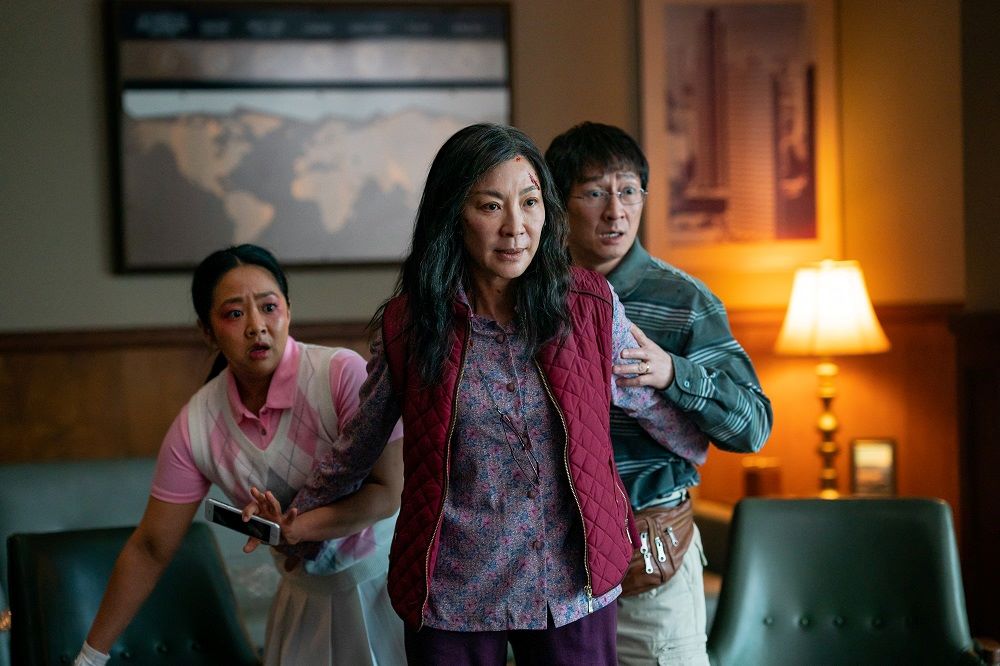“Everything Everywhere All at Once” Puts Immigrants in the Center of the Multiverse

Contrary to what Marvel Studios will have you believe, the multiverse belongs to first-generation immigrants. The culmination of a person’s entire life can boil down to a single choice. A central decision that branched off into hundreds more, carving out a wholly unique path. One path out of an infinite number of possibilities.
“Everything Everywhere All at Once” is a diasporic story unlike any other. The directing duo, the Daniels, recognize that the immigrant experience is a lot like reading a choose-your-own-adventure book; except as an immigrant, you’re the one actively writing the story. Facing another crossroads, reckoning the constant what-ifs, navigating between two or more separate worlds — often at the same time — immigrants inhabit a liminal time and space: living with the unshakable awareness that they left something core to their being behind to physically stumbling through a destination that never belonged to them. This feeling stretches, absorbing generation after generation, but adapts as such to accommodate the widening gaps. To first-generation immigrants, second- and successive generation immigrants are in a plane so unfathomable and out of reach. First-generation parents lose their children to the unknown, to the foreign forces that could never fully break through their already hardened shell. Second-generation immigrants, not wanting their parents to hold them back, push them away and succumb to…well, the everything bagel.

For a film so insanely wacky and weird (a description that bears repeating: there’s a universe where humans have hot dogs for fingers for god’s sake), it is profound and moving in a way that transcends reason. My first viewing of “Everything Everywhere All at Once” was genuinely one of the most visceral movie-watching experiences I had ever…experienced. My face exploded with tears and snot, a reaction as extreme and messy as the film itself. But I don’t say “extreme and messy” with a negative connotation — far from it. That’s how family dynamics in immigrant households usually play out. Bridging the gap between generations often feels painful — impossible even — but at the heart of this film lies a clear message: in the end, family is worth everything. It’s worth holding onto. It’s worth fighting for.
Every sacrifice. Every loss. Every decision. They all hold weight and mean something. They all led you to this very moment. Every aspect of your identity — your race, ethnicity, gender, and sexuality — comes together to create a variant, a version of yourself that wouldn’t exist on any other timeline. Despite the differences that set us apart as people, we’re all just yearning to be recognized and accepted by the ones we love most.
“Everything Everywhere All at Once” is the Asian-centric family drama and intergenerational adventure I never knew I needed. A story I have been desperate for. And yet, even now, I struggle to fully comprehend the impact it has had on me. It’s a film that wastes no time trying to justify why Asian stories deserve to be told. Instead, it grants the Asian leads endless freedom to explore and embrace their highest highs and lowest lows. It gives them the opportunity to act absurd and ridiculous without ever being the butt of the joke. It lays out multiple universes in which they have limitless potential: capable of everything, existing everywhere, all at once.
